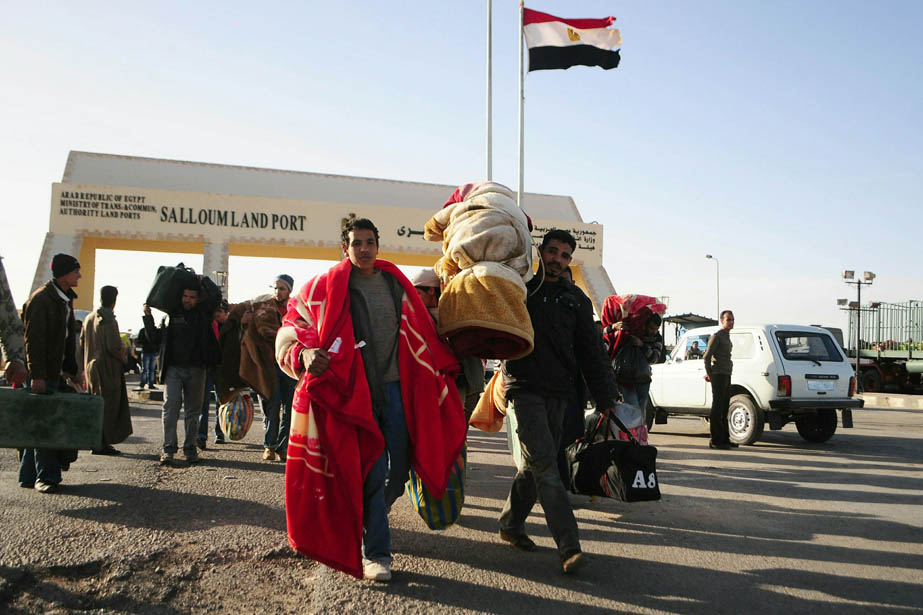CAIRO: A leading Islamist presidential hopeful said on Thursday the army had no right to meddle in drawing up Egypt’s new constitution and said the elected parliament, on course for an Islamist majority, should control the drafting process.
Abdel Moneim Aboul Fotouh, who was turfed out of the Muslim Brotherhood after defying its decision not to run for the presidency, also told Reuters he did not expect even hardline Islamist parliamentarians to demand new Islamic ideas be written into the constitution beyond those already in the old one.
Aboul Fotouh said the military was welcome to its own views, but it should not try to force them on to the country.
"The army can state its opinion in any political issue or cause – and that will be appreciated and welcomed – without interfering or imposing any opinion," he said in an interview at his home on the outskirts of Cairo.
Parliament will choose the 100-strong assembly to draft the constitution, but an army general said on Wednesday that an advisory council to the ruling army, the army-backed cabinet and parliament should first agree criteria for who would qualify.
The announcement gives unelected bodies a role in the selection and appeared to revive earlier army-backed proposals setting ground rules for the drafting. Those were withdrawn in November after protests against army rule that turned violent.
Aboul Fotouh, 60, who was viewed as a moderate and a reformer when in the Brotherhood, said it "would be wrong … for someone to imagine something can be imposed on an elected parliament. It is against the rules of democracy and freedoms".
Opinion polls and analysts suggest Aboul Fotouh is among the leading presidential contenders. He was recently put ahead of figures such as former U.N. diplomat Mohamed ElBaradei but behind ex-Arab League chief Amr Moussa, who was also a popular Egyptian foreign minister and is a well-known public face.
Some critics of Aboul Fotouh say the Brotherhood may be quietly backing him despite formally pushing him out of the group. He says he keeps channels open with the Brotherhood, other Islamists, liberals and a range of groups.
The Brotherhood, whose party is ahead in the staggered parliamentary election, criticized the army’s latest remarks on drafting the constitution as an attempt to undercut parliament.
Aboul Fotouh said he expected the Brotherhood’s Freedom and Justice Party to seek a broad alliance in parliament, which is what the party itself has said it wants.
Playing down concerns
"I believe the Brotherhood, given its history and experience, can create dialogue with all different parties," he said, adding that the group would lead any majority "in a moderate way and in favor of the national interest and not a certain group".
The Brotherhood says it wants a democratic Islamic state but has long sought to win over society to its vision gradually.
"I am very confident based on my knowledge of Egypt’s political scene, especially the Islamic segment, that the coming constitution will not be very different from the previous one."
Though the old constitution was criticized for articles that cemented the one-man rule of ousted President Hosni Mubarak, legal experts have said it included some well-worded sections on civil and other rights, even if they were routinely ignored.
Aboul Fotouh played down concerns about the ultra-conservative Salafis, the surprise runners up in the parliamentary poll so far. Salafis want Egypt run according to Islamic sharia law But he said he did not expect them to seek big constitutional changes.
"I have been talking to the main Salafi Al-Nour Party … I don’t agree with them in all of their opinions but I am happy that they are developing," said Aboul Fotouh.
He said Salafis would be satisfied to keep article two of the constitution stating "the principles of Islamic law are the principle source of legislation" without demanding more change.
"They were only upset when some asked for this article to be removed," Aboul Fotouh said.
Analysts say Salafis may initially use their ballot box gains to impose dress codes and other strictures more informally, rather than seek a swift change to laws.
The army has said the new constitution could be in place before the presidential race expected in June, though that would be a tight deadline when the staggered upper and lower house election for parliament will not be completed till March.
In his own presidential campaign, Aboul Fotouh said he would work to protect personal freedoms, opposing any attempt to impose rules on food, drink and dress or coercion in beliefs in a nation where a tenth of the 80 million population are Christian.
"I will fight this with all my powers whether as a member of society or as an official or as president," he said.
